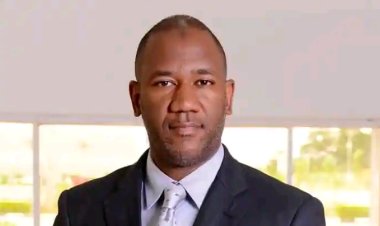Elizade University VC Advocates for Better Remuneration for Doctors to Combat Brain Drain
Prof. Kayode Ijadunola, Vice Chancellor of Elizade University in Ondo State, urged federal and state governments to improve remuneration and working conditions for healthcare professionals to combat the ongoing brain drain in Nigeria.

The Vice Chancellor of Elizade University, Ilara Mokin, Ondo State, Prof. Kayode Ijadunola, has called on both federal and state governments to create a supportive environment for doctors and health workers in Nigeria to prevent them from seeking employment opportunities abroad. This appeal was made during the induction ceremony for 23 newly graduated professional nurses into the Nurses and Midwifery Council of Nigeria, held on the university campus.
Prof. Ijadunola emphasized that many healthcare professionals have left Nigeria for better prospects overseas, a trend he noted is unlikely to be reversed without significant changes in the domestic healthcare landscape. “No legislation can prevent them from traveling abroad for greener pastures,” he remarked, highlighting the urgent need for improved remuneration and working conditions to retain trained professionals.
He pointed out that while Nigeria produces a significant number of health workers, retaining them remains a critical challenge. The Vice Chancellor attributed the ongoing healthcare worker exodus to various factors, including inadequate pay, poor working conditions, and the impact of mental fatigue following the COVID-19 pandemic. “The facilities where we work are not conducive, the equipment is lacking, and health workers are often targets of banditry,” he stated.
Prof. Ijadunola expressed concern that proposals by the National Assembly to mandate health workers to remain in the country for five years post-graduation may not be viable given the high costs associated with their training. He stated, “As we are producing them, they are leaving; that is the pain of our society today.”
In a related remark, Prof. Omolola Irinoye, Vice Chancellor of Achievers University, corroborated the need for improved salaries and work environments for health workers. She noted, “People must be paid in accordance with the nature of the work they do. Our facilities are problematic, and the essential tools needed for effective healthcare delivery are often lacking.”
Prof. Irinoye highlighted the dire conditions in some hospitals, mentioning cases where nurses had to use their phones' flashlights to attend to patients due to power outages. She urged for a comprehensive review of human resources and healthcare facilities to address these issues, stating that improving conditions could significantly reduce the need for people to seek medical attention outside the country.

 Chris Oyeoku Okafor
Chris Oyeoku Okafor 



